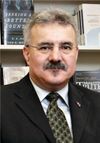Three years after John Sutcliff’s sermon at Clipston, Northamptonshire, which we looked at in last month’s article, the London Baptist minister John Rippon (1751-1836) printed a list of Calvinistic Baptist congregations and ministers in his Baptist Annual Register.
Rippon calculated that there were at that time 326 churches in England and 56 in Wales, more than double the number which were in existence forty years previously. In 1798 he issued another list, according to which there were now 361 churches in England and 84 in Wales.
Commenting on these statistics, Rippon stated: ‘It is said, that more of our meeting houses have been enlarged, within the last five years, and more built within the last fifteen, than had been built and enlarged for thirty years before’.
This is no exaggeration. While there was steady growth throughout the last forty or so years of the 1700s, the most rapid expansion of the denomination took place in the final decade of the century.
Qualifications
This rapid influx of new converts, which continued unabated into the early decades of the nineteenth century, raised concerns regarding their integration into existing congregations or their establishment in new ones.
The presence of these concerns can be seen, for example, in the fact that most of the circular letters issued by the Northamptonshire Association during the last fifteen years of Sutcliff’s life dealt with church issues.
Moreover, all four of the circular letters which Sutcliff wrote for the association in this period are focused, to one degree or another, on such issues. Qualifications for Church Fellowship, written in the year 1800, is a good representative in this regard.

Not just theory
It is evident from the beginning of the tract that Sutcliff is not dealing with a merely theoretical issue. The churches in his association are receiving new members. ‘A pleasing business’, he remarks, but one that requires caution, ‘lest you be crowded with characters who, instead of being a blessing among you, will be the bane of your societies … [and also requires] tenderness, lest contrary to our Lord’s example you break the bruised reed, or discourage the weaker part of his sincere disciples’.
His readers especially needed caution because, in Sutcliff’s opinion, ‘many, once large and flourishing churches’ are now in ruins because of ‘a want of due attention to the character of such as they admitted into their communion’.
The Holy Spirit, he said, was grieved and withdrew ‘his divine influences from [their] sacred ordinances’.
Sutcliff does not specify the particular churches he had in mind here. Most likely they were those Nonconformist congregations which, during the course of the 18th century, had succumbed to either Arianism (the denial of Christ’s full deity) or Unitarianism (the denial of the Trinity).
Church membership
Who, then, should be received into the membership of a local church? Although Sutcliff tackles this question from both the vantage-point of the prospective member and that of the congregation, the essence of his response in both cases is the classical Nonconformist answer — visible saints.
‘A Christian society’, he declares, ‘is styled a spiritual house; a holy priesthood; a holy temple; a habitation for God, through the Spirit … Those who are proper characters to be received into communion with a Christian church, should be spiritual men … men disposed to seek the good of the interest of Christ in general, and of that society to which they unite in particular; men devoted to God; men who hold fast the form of sound words; and who in their spirit and walk, adorn the doctrine of God our Saviour.’
Sutcliff proceeds to defend at length the practice of requiring prospective members to give an account of their personal religious experience. Mere acknowledgement of the truth of leading Christian doctrines is not sufficient; a profession of ‘personal experimental religion’ is required.
He refers to Jonathan Edwards’ controversial An Humble Inquiry into the Rules of the Word of God, concerning the Qualifications requisite to a Complete Standing and Full Communion in the Visible Church of God.
He comments: ‘That great writer has ably proved that nothing deserves the name of a Christian profession where the thing professed is not genuine personal Christianity’.
Along with such a profession, Sutcliff insists, there must be a demonstrable ‘obedience to all the commandments of Jesus Christ’.
‘I wish I had prayed more’
Fourteen years later, when Sutcliff lay dying in 1814, he remarked to Fuller: ‘I wish I had prayed more’. For some time after his friend’s death Andrew Fuller (1754-1815) ruminated on this statement.
He found it rather puzzling, coming as it did from a man who had been at the heart of a prayer movement that had been essential to the revitalisation of the Baptist denomination. But eventually he came up with the following ‘exegesis’ and application of Sutcliff’s words.
‘”I wish that I had prayed more”. I do not suppose that brother Sutcliffe meant that he wished he had prayed more frequently, but more spiritually. I wish I had prayed more for the influences of the Holy Spirit, I might have enjoyed more of the power of vital godliness.
‘I wish I had prayed more for the assistance of the Holy Spirit, in studying and preaching my sermons; I might have seen more of the blessing of God attending my ministry.
‘I wish I had prayed more for the out-pouring of the Holy Spirit to attend the labours of our friends in India; I might have witnessed more of the effects of their efforts in the conversion of the heathen.’
Whether or not Fuller correctly interpreted Sutcliff’s statement, his application certainly resonates with themes dear to Sutcliff’s heart — personal renewal, the revival of the church, and Spirit-empowered prayer and witness.







